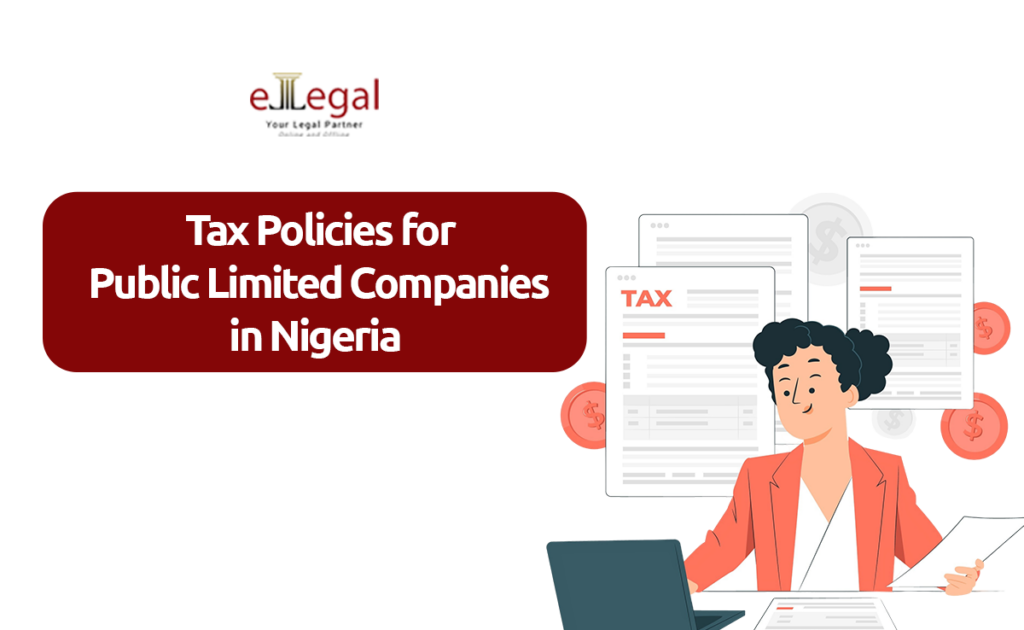Tax Policies for Public Limited Companies in Nigeria
Tax policies play a crucial role in shaping the business environment in Nigeria. For public limited companies (PLCs), understanding these tax policies is essential for compliance and strategic planning. This blog delves into the intricacies of tax policies for public limited companies in Nigeria, with a particular focus on key legislations, exemptions, reforms, and obligations.
Overview of Taxation in Nigeria
In Nigeria, the tax system is regulated by a variety of laws, with the Companies Income Tax Act (CITA) playing a crucial role in the taxation of corporate entities, including public limited companies. The country employs a centralized tax system, where the Federal Inland Revenue Service (FIRS) is the key agency responsible for overseeing corporate tax administration. Public limited companies, which are either listed on the Nigerian Stock Exchange or formed under the Companies and Allied Matters Act (CAMA), must comply with specific tax regulations, including the timely filing of tax returns and meeting their tax payment responsibilities.
The Companies Income Tax Act (CITA)
The Companies Income Tax Act in Nigeria is the foundational legislation governing corporate taxation. Under CITA, public limited companies are required to pay Companies Income Tax (CIT) on their global profits derived from Nigeria.
Tax Rate for Companies in Nigeria
Nigeria has established three Corporate Income Tax (CIT) rates for companies, which vary according to their turnover. Large companies, those with a turnover over ₦100 million, are taxed at 30%. Medium-sized companies, with turnovers ranging from ₦25 million to ₦100 million, are subject to a 20% tax rate. Meanwhile, small companies with turnovers below ₦25 million benefit from a 0% tax rate.
Exemptions and Incentives
Startup companies play a vital role in economic growth by reducing unemployment, improving living standards, and attracting investments. To support their development, the Nigerian government offers various tax incentives to ease their entry and competitiveness in the economy, enhancing their production and overall output.
The Prevailing tax incentives granted by the Nigerian government include:
- Pioneer Status
- Tax exemption from
- Company Income Tax
- Capital Gains Tax on disposal of equity interest
- Tertiary Education Tax
- A tax-free period for companies in downstream operations (gas utilization)
- Tax-free dividends during this period
Companies Exempted from Minimum Tax in Nigeria
Certain categories of companies are exempted from the payment of minimum tax under Nigerian tax laws. These include:
- Companies engaged in agricultural trade or business.
- Companies with at least 25% equity capital owned by Nigerians.
- Public limited companies within their first four calendar years of incorporation.
These exemptions aim to support businesses in their formative years or those contributing significantly to specific sectors of the economy.
Tax Obligations for Public Limited Companies in Nigeria
To remain compliant, public limited companies in Nigeria must fulfil several tax obligations:
- Filing of Annual Returns
Companies are required to file annual tax returns within six months after the end of their financial year. These returns must include audited financial statements, tax computations, and other relevant documents.
- Payment of Taxes
CIT payments are typically made in instalments, with final settlements due after the tax returns are filed. Late payment attracts penalties and interest.
- Education Tax
A mandatory 2% of assessable profits is levied as an Education Tax, payable to the Tertiary Education Trust Fund (TETFund).
- Value Added Tax (VAT)
Companies must charge and remit VAT on goods and services at the prevailing rate of 7.5%.
Challenges Facing Public Limited Companies in Nigeria
Despite the structured tax framework, public limited companies in Nigeria face several challenges:
- Complex Tax Procedures
Dealing with Nigeria’s tax system can feel overwhelming, with multiple tax authorities and complicated compliance rules to navigate.
- Heavy Tax Load
Public limited companies often face a hefty tax burden, thanks to a mix of CIT, VAT, Education Tax, and other levies.
- Challenges with Tax Incentives
Nigeria has some great tax incentives, but getting access to them can be tough due to paperwork and strict qualification requirements.
- Tax Evasion and Informal Sector Issues
Widespread tax evasion and a large informal economy make it hard for tax policies to work effectively, putting extra pressure on companies that play by the rules.
The Role of Public Limited Companies in Nigeria’s Economy
Public limited companies contribute significantly to Nigeria’s economic development. As large employers and major players in industries such as oil and gas, telecommunications, and banking, these companies are vital to the country’s GDP. Consequently, their compliance with tax obligations is critical for national revenue generation.
Conclusion
Understanding tax policies for public limited companies in Nigeria is essential for businesses aiming to operate successfully in the country. The Companies Income Tax Act in Nigeria provides the legal framework for corporate taxation, with provisions for tax rates, exemptions, and incentives. While challenges persist, recent Nigeria tax reform bills demonstrate the government’s commitment to improving the tax landscape. For more information, Contact us Now.




